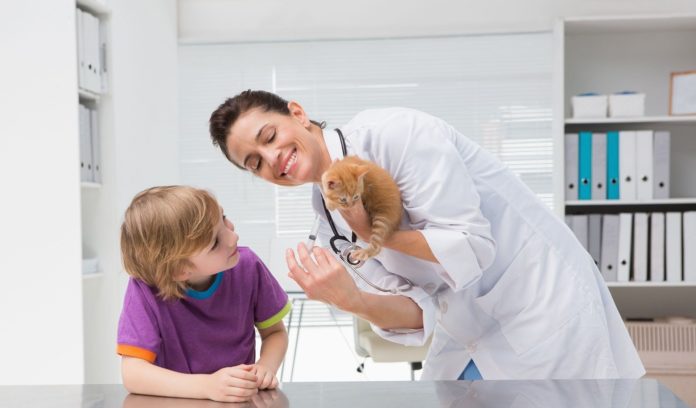We closely monitor what we eat daily. Our diet keeps us healthy and fit and gives us enough energy to perform our daily tasks. Diet and nutrition are no different in our pets, and nutrition can largely impact your pet’s overall health. Below, let’s examine your pet’s nutrition in more detail to understand just how important a healthy diet is to your pet’s health and happiness.
Why Is Pet Nutrition Important?
Just like humans, a pet’s body is fueled by what he eats. High protein foods with minimal fats and added sugars are a great way to keep the body healthy and strong. Too much fat or sugar can harm your pet and not allow him to be at his best. Your pet’s nutrition can impact your pet’s health, activity level, cognitive ability, and longevity. Remember, your pet’s nutrition is not only the kibble he eats daily but also the treats and any table scraps he may be fed from a willing accomplice. Monitoring your pet’s nutrition can also help you detect disease early, noting a sudden weight gain or loss, drop in activity level, or possible allergic reaction.
Understanding Your Pet’s Needs
Every pet is different and will have different nutritional needs. Sometimes, your pet’s needs will change based on age or activity level. Other times, your pet’s dietary requirements may depend on their particular breed or activity level. In general, follow the below nutritional advice for your pet, but always be aware that every animal is an individual, and nutrition needs may be slightly different.
Young Cats and Dogs: Puppies and kittens have plenty of growing to do and should be fed a kibble that is specifically blended for young animals. This food will give your pet the energy and nutrition he needs to grow healthy and strong. Avoid giving young cats and dogs extremely high protein diets. This food can cause your pet’s bones and tissues to grow too quickly, which can prevent them from forming correctly. Most cats and dogs can graduate to adult food at eight to ten months of age.
Adult Cats and Dogs: Cats and dogs that have reached maturity can move to adult food. This food will give your pet the necessary vitamins and nutrients to keep him healthy. Be sure to purchase high-quality pet food with limited sugars and grains. Your pet may need specialized pet food if he is a very active, high-energy dog or is struggling with his or her weight. There are also specially formulated adult food blends that can help reduce allergies in pets.
Senior Cats and Dogs: As pets get older, their activity level tends to decrease, and they will need fewer calories to sustain their activity through the day. Once your pet has reached senior age, typically around ten years of age, switching your pet to a senior animal diet is time. This food will help your pet maintain his weight while still getting the necessary vitamins and minerals from his food.
Remember, your pet’s needs are constantly changing and must be closely monitored. Be aware of changes in your pet’s activity level that may prompt a change in diet. Your pet should not be on one specific type of food for his entire life. Ensure you constantly evolve your pet’s diet to match his needs to keep him happy and healthy.
Conditions Related to Poor Nutrition
Keeping your pet healthy for his life begins with a proper diet. Many cats and dogs suffer from obesity which can lead to a slew of health concerns. Obesity can make joint conditions more painful, like hip and elbow dysplasia or arthritis, or can lead to chronic illnesses like diabetes. Further, high levels of fat and sugars can lead to internal organ complications. The digestive tract may be impacted, as well as the heart, kidneys, and liver. If you suspect that your pet is becoming overweight, or developing a chronic condition, be sure to reach out to a veterinarian today. A close examination of your pet’s diet may be the key to resolving and mitigating ongoing conditions related to your pet’s nutrition.




